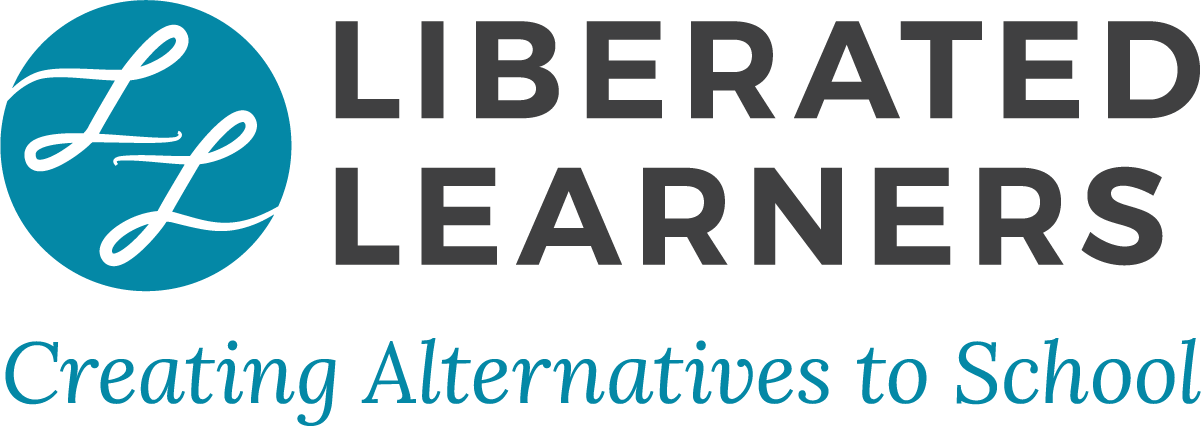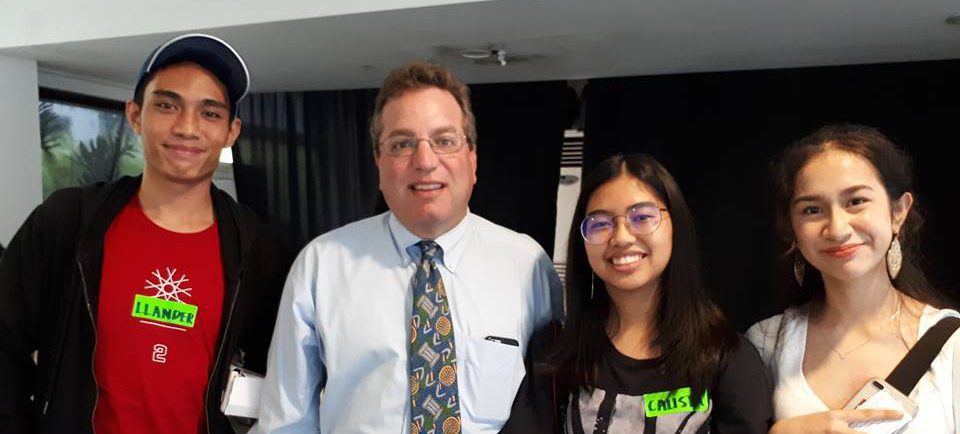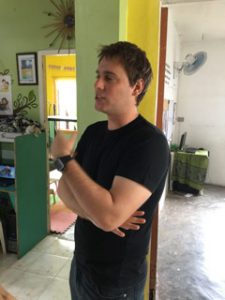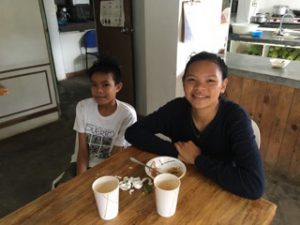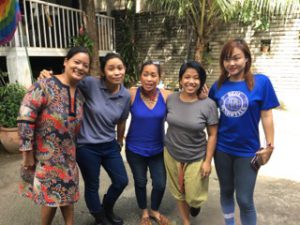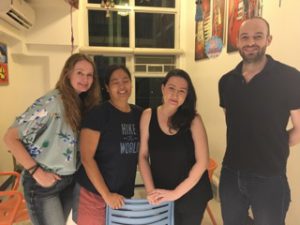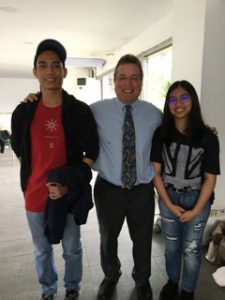By Ken Danford.
A Liberated Learners Center in Manila, The Philippines? You don’t need my report. Watch this interview with some school-age teens about whether they think the idea is possible:
Abot Tala is seeking to become the first Liberated Learners center outside of North America. I have just returned from spending ten days with their team, meeting everyone involved with the project and learning about Manila and The Philippines. I am struck by how they are facing mostly the same challenges every center here has faced, though they have some additional obstacles both culturally and logistically that are unique to their country. I am full of reflections and observations, with the major headline being that I believe this group will in fact make their vision a reality. I expect that a review of their strengths and their challenges will be useful to all of us interested in spreading the model. Before I offer any analysis, however, I begin with gratitude and appreciation to all my new friends in Manila for a unique adventure, particularly my host and Abot Tala founder, Joei Villarama. Joei not only hosted me, fed me, and saw to my comfort for ten days, she also planned a spectacularly varied and fascinating week full of events every day.
Trip Summary
The most memorable day of the week for me actually didn’t involve Abot Tala work, but was a visit to Fairplay Academy in Payatas, Quezon City. Payatas is known, unfortunately, for its mountain-size landfill. The census says 100,000 live there, though my hosts claim the real population is at least triple that number, sorting trash as their primary occupation. In 2000, Payatas became world famous when a landslide occurred on the dump burying hundreds of people, including children. The landfill has been officially closed and covered by a thin layer of grass, but the trash industry remains the primary occupation. In this community, British ex-pat Roy Moore and some others have created Fairplay for All Foundation, which offers a football club, a café, and an alternative school for the poorest children in the neighborhood. The Fairplay Academy is a democratic free school, and does share some principles and approaches with North Star and Liberated Learners, but the seriousness of Fairplay’s mission makes it’s hard to claim we share much more in common. I was especially delighted to meet a fourteen-year old girl named
Althea who is on The Philippines Street Kid World Cup Team and has traveled to Russia and Laos representing her community. I did not hear about many alternative schools in Manila, so the Fairplay community may be an interesting ally for Abot Tala. Over the course of my time in Manila, I did learn that homeschooling is a legal and growing movement in The Philippines. We visited several existing homeschooling centers, including Gopala Learning Haven, Blended Learning Center, and Homeschooling Global. Gopala is a retreat center about two hours outside of Manila in the countryside, and offers weekend retreats for homeschooling families and others. They have larges spaces for group activities, as well as rooms for classes. They have a large kitchen and eating area to serve guests, and the capacity to host a few dozen overnight guests at a time. The director, Laksmi Mayula, not only homeschools her children, but is a former homeschooler herself, and now serves on the Board of the Homeschooling Association of the Philippines Islands (HAPI.) Laksmi is a founding Board member of Abot Tala, Gopala is a Homeschooling Provider, which offers support to families in their interactions with the government Department of Education. Laksmi and Gopala are important resources for the Abot Tala team.
Blended Learning Center in Cubao, a busy area of metro Manila, is located in the home of its director, Regina Abuyuan. The confident and enthusiastic Head Teacher, Zeena Panares, explained to me how they have evolved from a small group of unschooling parents banding together into a substantial program that supports families to leave school and use homeschooling to improve their lives. Sound familiar? Kindred spirits in the heart of Manila! This inspirational team already has demonstrated that our shared vision can operate in this environment. BLC might have more in common with some of our expansive and well-organized homeschooling co-ops than North Star, but without splitting hairs, we were among friends! Their target population and location makes it different from the Abot Tala vision, but it’s always great to have some local allies. Homeschooling Global is a somewhat elite, formal, and religious-oriented homeschooling curriculum provider that has an office in a fancy shopping mall near where I was staying. I met several people who use their services, which mostly include curriculum offerings and tutoring, along with some occasional classes in their mall office. Many of its students may seek the social and community options that Abot Tala intends to provide. I also heard about a couple of other homeschooling co-ops offering a day or two of classes and activities each week for its local members. Collectively, these programs show that there is already a vibrant and growing homeschooling culture in Manila. The focal point of the week was a public talk I gave about North Star, Liberated Learners, and how Abot Tala is planning to bring our approach to Manila. We promoted the event through an interview with the Manila Times and a radio show interview that lasted a full hour. During the week, we also met interested friends at The Metrobank Foundation (who informed us that their mandate is to promote high school retention and graduation rates), The One School (a university program focusing on entrepreneurship), Ignition (a company that works on branding and technical support for small business start ups), and The Del Monte Corporation, where we gave a lunch-time presentation to some interested employees about self-directed learning. In between all of these visits and meetings, I had many opportunities to get to know the potential board members and staff members of Abot Tala. Here are my reflections about their strengths and challenges.
Strengths
As with most Liberated Learners start-ups, the key strength starts with its founder’s vision and commitment. Joei Villarama has strong personal reasons for wanting to create an alternative to the traditional school options in Manila. Last fall she traveled across the United States with her family, visiting a number of progressive schools and learning centers. She concluded that the North Star model appealed to her the most, and for the past six months we have been video-consulting about how to build a program. Joei is a superb networker, and has a deep well of energy for meeting people and building a team. She also possesses numerous technical and computer skills essential for outreach and management. Significantly, Joei has some start-up capital she is willing to invest in this process to get a program off the ground. Joei is adamant that she would like to organize and create a program, but not work as a staff member with the students. For what it’s worth, a few years ago Joei experimented with homeschooling her own children, and found independent homeschooling to be well beyond her comfort zone. She has a solid idea about the role for Abot Tala to make homeschooling a sustainable approach for more families. I met at least eight people who may become board or staff members for Abot Tala, and to avoid the risk of leaving anyone out, I’m not going to name them all here. The group includes current and former homeschooling parents, current and former schoolteachers, old friends, and new acquaintances. The team has a range of skills, talents, and professional backgrounds. They have the capacity to build a lovely and compelling program. The need for Abot Tala certainly exists in Manila. Public schools are horrendously overcrowded, with 50 or more students per classroom. The dropout rate is over 50%. There is a dramatic shortage of teachers and classrooms in the public system. Approximately 15% of the student population attends private schools, mostly traditional Catholic schools or otherwise fairly rigid college-prep oriented schools. There are essentially no options for people seeking progressive, student-centered schools. Abot Tala is currently considering a tuition that is comparable to low-to-moderately priced private schools.
Challenges
Abot Tala faces many familiar challenges that we have encountered in the United States and Canada. First, homeschooling is perceived to be a parent-led, school-at-home model. Most people, including most teens, do not find this idea appealing. Second, many parents are conservative when it comes to education, and they want their children to struggle through the difficulties of school and graduate with a diploma from a known school. The culture of opting out of mainstream culture and forging one’s own path is not common for anyone, let alone for teenagers who don’t like their parent-selected private school. Finally, the task of finding a suitable space is particularly daunting in Manila. The identification of a clean, attractive space with an affordable rent appears to be a serious challenge. There are some significant cultural differences that this team faces in The Philippines. On a practical level, there is no system of community colleges, which have become a central resource for our members. I have not yet learned how Filipino homeschoolers might get an early head start on college the way that we promote in the United States. Also, The Philippines do not have a system of public libraries, a favorite and essential resource for many of us here. These two cultural institutions, community colleges and public libraries, are so central to our daily work that it takes a few minutes to contemplate how to proceed without them. From a larger perspective, Manila seems to lack much of a middle-class. It appeared to me that there is a relatively small socioeconomic elite group, which corresponds to those that can afford private school for their children. The people who use public school seem to have little disposable income, and appear to have many pressing basic needs such as housing, health, nutrition, sanitation, and transportation. We might argue that education for children might be a critical first step to addressing these other problems, but I’m not sure that’s true, and I know it’s not particularly convincing. It’s hard to know where to start when so many basic systems we take for granted aren’t in place. For people living in shanties, it seems a bit off the mark to debate the merits of self-directed learning vs. traditional school attendance.
After acknowledging this overwhelming social context that is so different from what we face in the United States, I find myself recovering to feel enthusiastic about Abot Tala and its vision. Certainly, there are plenty of miserable teens from wealthy families in Manila’s private schools, and Abot Tala could offer them a better adolescence and make a huge difference in their lives. There are some public school students who might be able to attend Abot Tala with some tuition assistance, and offering them a positive manner to rise above their public school option seems absolutely inspirational. A vibrant community center for teens learning together outside of school will improve the lives of many teens and families, while doing no harm to anyone. The Abot Tala team knows how homeschoolers move on to university programs, work, and other opportunities in The Philippines, and we can feel confident that they will be contributing in a creative and novel way to the lives of the teens who join their program. I also see some of the cultural obstacles as potentially helpful. For example, Manila has chaotic traffic, and every outing in a car is something of an unpleasant and hard experience. Helping school people transition to homeschooling, and perhaps decreasing their commutes to only three or four days per week instead of five days actually holds some serious appeal for everyone. While the concepts of self-directed learning and unschooling are somewhat unfamiliar, the freshness and audacity of the approach will surely be noteworthy and win some attention. The fact that public schools are discouraging and private schools overly traditional leaves a fairly open field for some new options. Abot Tala’s networking skills will be useful, and their ability to connect their vision with the international movement of Liberated Learners will likely work well with their target audience. These challenges are real and difficult obstacles. As we know, with some luck, they are also surmountable. In summary, as of late July 2018, the next few tasks the Abot Tala team has established for itself are:
- Identify a location for the center.
- Recruit the first 10-20 young members.
- Select and hire the first staff members.
- Grow the Abot Tala Board of Directors into a working team.
- Identify one major donor to share the financial start-up burden with Joei.
We look forward to introducing the staff and board of Abot Tala to the rest of the Liberated Learners community and to seeing how they progress as they target an opening sometime in 2019. Share this Post
